New Faculty Reshape the Meaning of Inclusive Research, Teaching and Service
Scholars advance equity by centering the perspectives, lived experiences and voices of communities of color
Story by:
Published Date
Story by:
Topics covered:
Share This:
Article Content
Over the past three years, 20 faculty members have been hired at UC San Diego who are committed to advancing equity, diversity and inclusion using social justice frameworks. Each faculty member has a special focus on one of three key areas of impact, which include bridging Black studies and STEM, designing just futures for Indigenous, Black and migrant communities and expanding course offerings and curricular opportunities in Latinx and Chicanx Studies.
The new appointments are made possible by three grants totaling $1.5 million from the University of California Advancing Faculty Diversity Program. The grants were proposed and led by UC San Diego faculty and the Center for Faculty Diversity and Inclusion team, with a significant ongoing investment from campus leadership. The goal is to accelerate UC San Diego’s progress in building a more diverse group of faculty, expanding our array of courses and scholarship focused on diverse populations and designing more research and mentoring opportunities for underrepresented students.
This fall, an additional $175,000 grant was received to support the retention and success of faculty across the three cluster hire cohorts. Faculty will benefit from career support such as navigating academic reviews and promotions, social engagement opportunities and introductions to community partners, as well as professional development retreats for research and teaching.
“The retention grant gives us additional support and resources to pilot a program focused on retaining UC San Diego scholars whose scholarship is intimately aligned and intertwined with documenting and investigating the experiences and various racial and social outcomes within and among communities of color,” said Professor of Education Studies Thandeka K. Chapman, who is also principal investigator for the retention grant. “We brought these amazing researchers to UC San Diego, and we plan to keep them here as career scholars.”
Want to learn more about UC San Diego’s newest faculty? We spoke with five professors across campus who are driven to improve equity in healthcare, cultivate community through dance, design artificial intelligence that benefits all, remove barriers to learning and improve diversity in science.
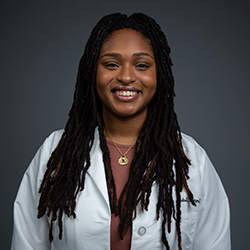
The Disparity Destroyer: Jacinda Abdul-Mutakabbir
It all started with a conversation on social media. Jacinda Abdul-Mutakabbir received a message from Skaggs School of Pharmacy and Pharmaceutical Sciences Division Head of Clinical Pharmacy Linda Awdishu. The interaction came with an invitation to apply to become part of the “Bridging Black Studies and STEM” recruitment. After forming a friendship and receiving mentorship from Awdishu, Abdul-Mutakabbir decided to join UC San Diego.
“I am a Black pharmacist that does research and work in Black communities to ensure that Black individuals are able to have better health,” said Abdul-Mutakabbir, assistant professor of Clinical Pharmacy. “I went to Howard University, and to be able to say that I’m now a member of an African American Studies division means a lot to me. It’s a full circle experience.”
Abdul-Mutakabbir is committed to improving access to healthcare for those who are racially and socially marginalized. As lead pharmacist and educator for the Congregations Organized for Prophetic Engagement-Health Equity Collaborative, she examines the intersection of antibiotic resistance and vaccine equity. Her outreach, conducted in San Bernardino, Calif., includes community vaccination clinics that serve Black and Latino populations; more than 3,000 vaccines have been provided, along with numerous lectures that help educate about the importance of vaccines.
Her courses at the Skaggs School of Pharmacy will invite student participation in the clinics, as well as open conversation about social determinants of health, how racism can impact health equity and systems of oppression. “We’re at a time when you cannot continue to move through life without having knowledge about race and racism,” said Abdul-Mutakabbir. “If we can educate the next generation of healthcare providers about this, we can decrease the amount of disparity present in our healthcare systems.”
“I went to Howard University, and to be able to say that I’m now a member of an African American Studies division means a lot to me. It’s a full circle experience.”
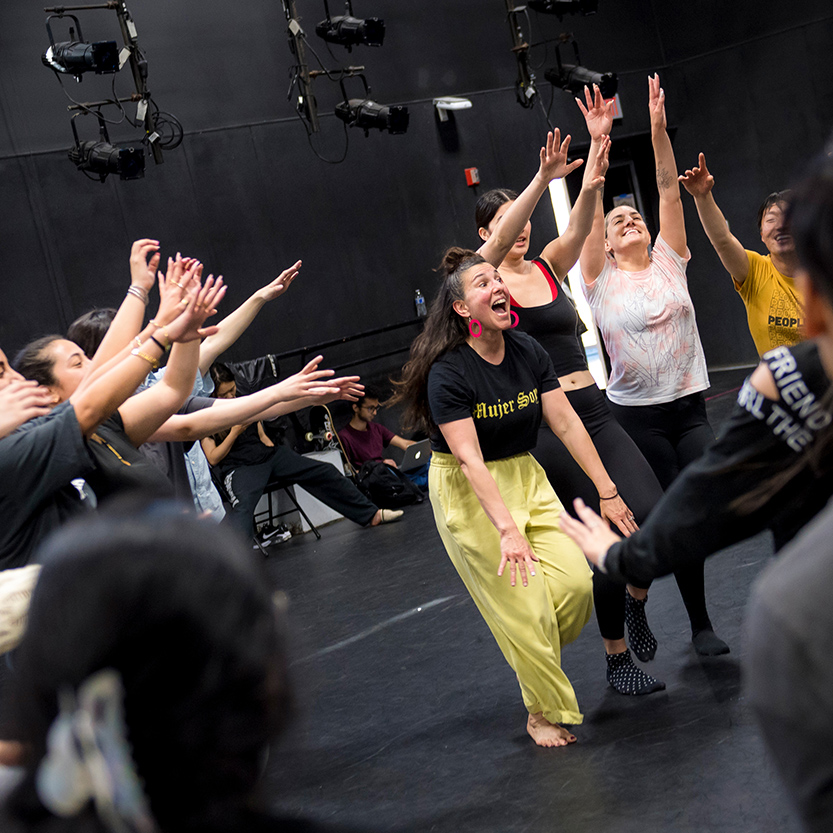
The Movement ‘Artivist’: Ana María Álvarez
What if instead of individualism and isolation, the values of family and community were cherished above all? Associate Professor of Theatre and Dance Ana Maria Álvarez envisions this alternate reality where wholeness and success come from connections with others. And she is achieving this by inviting people with diverse experiences and realities to share their stories through movement.
“I often felt in my own education as a Latina dancer and choreographer that I was consistently defending my work, the movement lineages I embodied, and my values,” said Álvarez. “This taught me to be resilient in the advocacy for my work and relentless in my commitment to shifting our field from the inside out. I’m specifically committed to fostering leadership opportunities for BIPOC [Black, Indigenous, People of Color] artists to have spaces where they can create, grow and feel whole.”
When Álvarez learned about UC San Diego’s initiative to hire more faculty members whose research and teaching focus on issues affecting Latinx and Chicanx students, she felt called. “To see a large research university make a multi-year commitment to hire innovators in various fields as part of a Latine cluster hire felt exciting,” she said. “I loved the idea of coming into the institution with a group of other incredible artists and scholars, and I sensed that the ways I work—rooted in community and grounded in values—were being called forth.”
Álvarez has already begun to enhance opportunities to build relationships. For instance, this fall quarter she has organized a free “Connection Jam” series, two hours of “soul-filling, radical joy practice.” Open to everyone (no dance experience required), the workshops are an opportunity to play, think, engage and build joyful connection. “We can’t exist without one another; this is the impetus for the work I do through the body, through movement, and through art making.”
“We can’t exist without one another; this is the impetus for the work I do through the body, through movement, and through art making.”
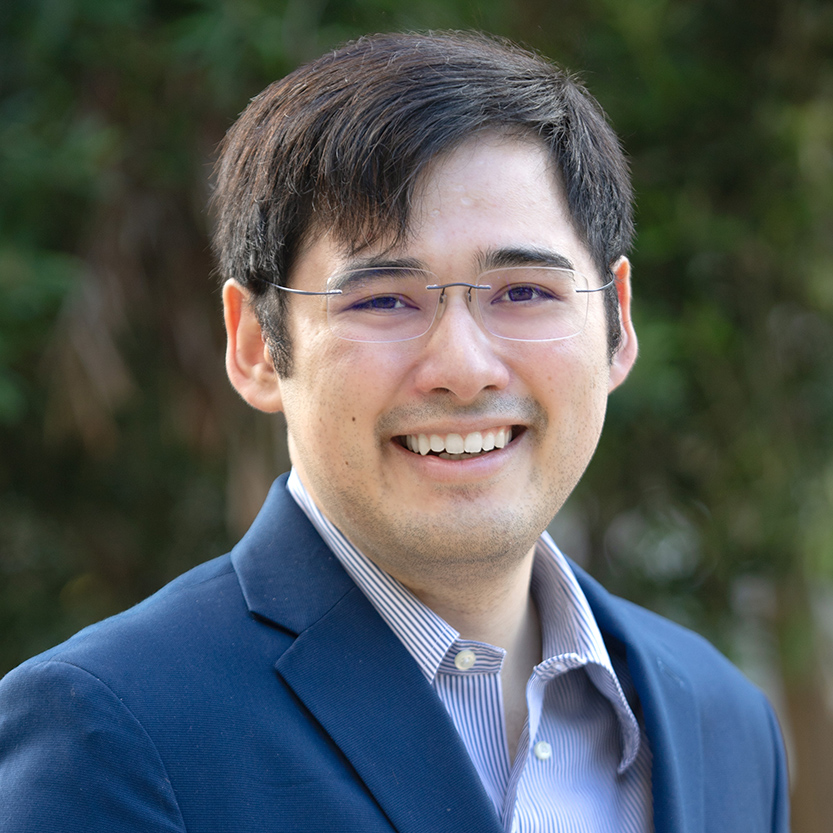
The Teaching Transformer: Andrew Estrada Phuong
Andrew Estrada Phuong recalls being inspired and motivated by “teachers and mentors who transformed classrooms into communities,” where he and everyone could thrive. These educators sparked his lifelong commitment to uncovering the most effective ways to meet students where they are at to reduce stress, mitigate equity barriers, and boost success for everyone—which is exactly what he is pursuing as an assistant professor in the Department of Education Studies.
“I have experienced how navigating the K-20 pipeline can feel like a maze without a map. My goal is to restructure that maze into a highway towards greater access, equity, and inclusion!” said Phuong. “I have applied and adapted different teaching practices that addressed students’ equity barriers and helped them learn more. I am continuing to hone these approaches so that I can be a champion for all my students, bringing in equity-oriented practices and universal design for learning where all students have equitable opportunities for success.”
Part of the Latinx/Chicanx Cluster Hire Initiative, Phuong joined UC San Diego to be part of a community of scholars who are engaged in social justice efforts. In particular, he is eager to support the university’s efforts to become a Hispanic-Serving Institution. He brings a transformative framework that he co-developed at UC Berkeley called Adaptive Equity-Oriented Pedagogy that significantly improves student engagement, success and belonging. Phuong has built research-practice partnerships and award-winning programs focused on this framework to scale the adoption of equitable and anti-racist practices across multiple universities.
“Being a scholar from a Latinx and Vietnamese immigrant household fuels my passion to research ways to examine and address equity barriers in higher education,” said Phuong. “I’m excited to gain and contribute new understandings of Latinx students and communities to co-create a ‘Latinx Thriving Institution!’”
“I’m excited to gain and contribute new understandings of Latinx students and communities to co-create a ‘Latinx Thriving Institution!’”
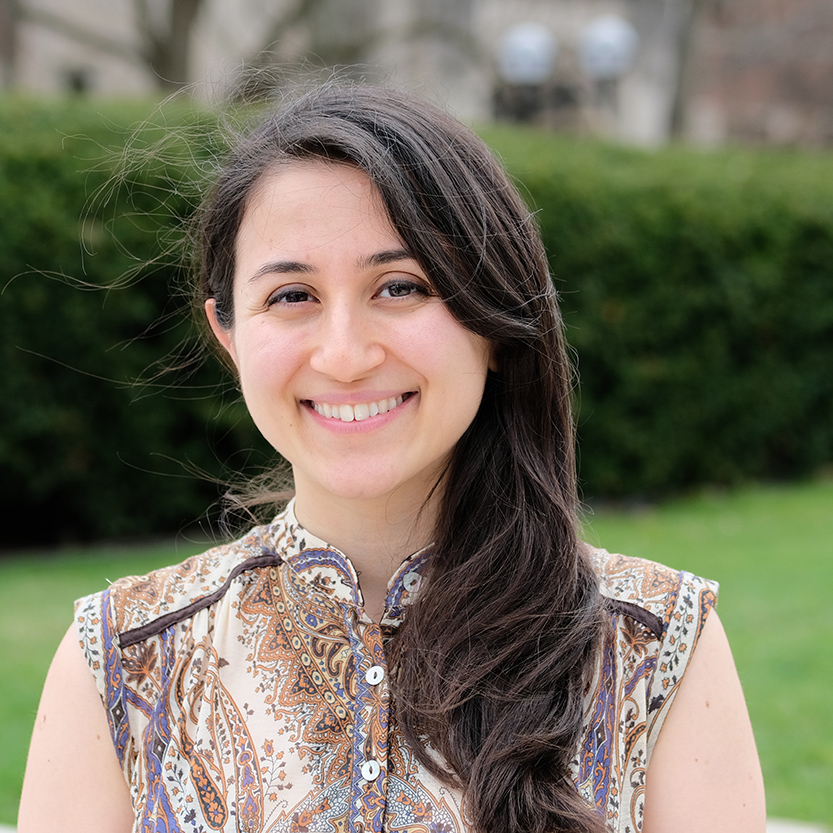
The AI Inspector: Parinaz Naghizadeh
Our society is increasingly embracing the power of artificial intelligence (AI) and machine learning (ML) to make recommendations, serve customers, ensure safety, diagnose disease and more. These technologies have the potential to improve efficiency, yet they are far from perfect. That’s where Parinaz Naghizadeh comes in.
“We are increasingly relying on these algorithms to inform or automate decision making in contexts with high societal impact—like hiring, policymaking and recommendation systems,” said Naghizadeh, assistant professor in the Department of Electrical and Computer Engineering. “Our group’s research aims to design AI and ML tools that bring economic advantages while upholding ethical and societal values.”
Naghizadeh recently joined UC San Diego as part of the Designing Just Futures hiring initiative, which draws faculty who are dedicated to designing a more equitable society through human-centered design. “It was the values outlined in the initiative—including interdisciplinary research, teaching and outreach activities that emphasize societal impact and advancing diversity that resonated with me,” said Naghizadeh on what attracted her to the role.
As part of the program, Naghizadeh has an affiliation with the Design Lab, which uses design to change systems and structures that create and perpetuate harm and inequality. Currently she is developing a new course called “Ethics and Economics of AI” that will explore ways to balance effective design of machine learning algorithms (e.g., accuracy, generalization) while ensuring ethics are upheld (e.g., fairness, privacy). “These design principles could help us prevent the disparate impacts that AI could have on different groups,” explained Naghizaeh.
“It was the values outlined in the initiative—including interdisciplinary research, teaching and outreach activities that emphasize societal impact and advancing diversity that resonated with me."
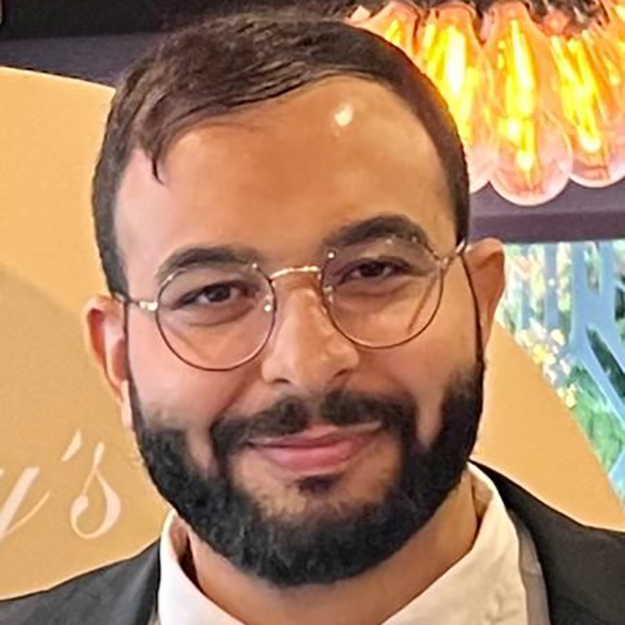
The Systems Navigator: John Sous
An expert in deciphering complex systems and their connections, Assistant Professor John Sous recently joined UC San Diego’s Department of Chemistry and Biochemistry. He is part of the “Bridging Black Studies and STEM” hiring initiative, which recruits scholars whose research is focused on racial disparities in health, medicine and the sciences with a focus on African American communities and the Black Diaspora.
On his decision to become part of UC San Diego’s faculty, Sous said, “I found myself impressed by UC San Diego's scholarship and learned that many of my colleagues are pioneers amongst their peers. So, I was naturally attracted to work here and become part of this community.”
Sous plans to develop a course on effective science communication to help students understand how to convey their ideas in writing, presentations and in discourse with colleagues. In his courses he provides space for students to express their thoughts and share their experiences, as well as participate in community outreach activities. “I emphasize to my students that enhancing diversity and equity in science will ultimately expand the pool of talent in academia, leading to more scientific advancements.”
In his research, Sous contemplates how science can positively impact society. Part of this is promoting awareness and actively countering racism. “At the fundamental level, we all wish for a fair work climate in which how our identity is perceived bears no consequence on our advancement,” said Sous. “It’s important to bring awareness to create an atmosphere that fosters understanding and helps circumvent the challenges faced by those who come from underprivileged backgrounds.”
Learn more about the Advancing Faculty Diversity Program and meet faculty from all three cohorts.
Learn more about research and education at UC San Diego in: Artificial Intelligence
“I emphasize to my students that enhancing diversity and equity in science will ultimately expand the pool of talent in academia, leading to more scientific advancements.”
You May Also Like
Engineers Take a Closer Look at How a Plant Virus Primes the Immune System to Fight Cancer
Technology & EngineeringStay in the Know
Keep up with all the latest from UC San Diego. Subscribe to the newsletter today.



